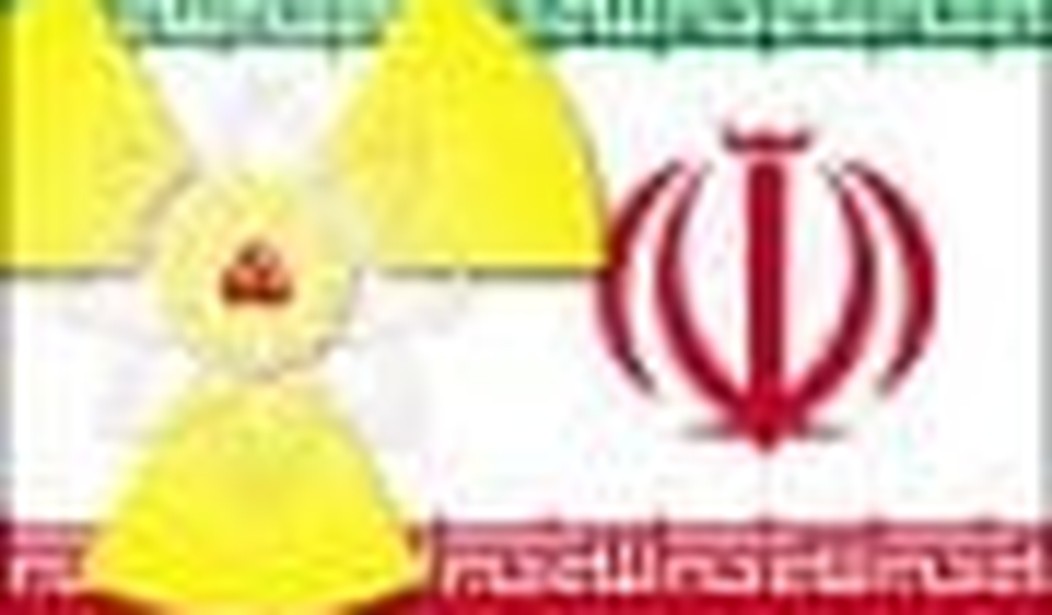Admiral Mike Mullen, chairman of the Joint Chiefs of Staff, announced at the end of last month that the United States was preparing for “potential military courses of action” against Iranian forces. “It would be a mistake,” he noted, “to think that we are out of combat capability.”
Many, however, would say the real mistake is to think the Bush administration is really contemplating military action. “It is time to admit the truth,” Charles Krauthammer recently wrote. “The Bush administration’s attempt to halt Iran’s nuclear program has failed.” Dubya still has more than eight months left in the White House, but most everyone is ready to close the book on the obviously exhausted president.
If Bush is indeed done and Iran has won this round, what are the consequences for the American-led international system? As an initial matter, Iran’s “atomic ayatollahs” will get to the brink of weaponizing the atom. According to the Mossad, they could have the bomb by the end of next year.
Keeping the ultimate weapon out of the hands of the Iranians is, as they say, “a question of civilization.” After all, Iranian President Mahmoud Ahmadinejad has made himself famous for his chatter about “wiping Israel off the map,” and Hassan Abassi, a senior member of Iran’s powerful Revolutionary Guards, once said, “We have a strategy drawn up for the destruction of Anglo-Saxon civilization.”
An Iran with a nuclear weapon is inherently dangerous, even if it never launches a warhead, drops a bomb, or supplies fissile material to one of its terrorist allies. By succeeding in building a nuclear arsenal it will destabilize the Middle East, already the world’s most volatile region. Moreover, there will be two other adverse consequences, both of them far more serious.
First, Iran, following in North Korea’s footsteps, will have proven that the Nuclear Nonproliferation Treaty is a dead letter. A collapse of this accord, the global pact that has helped slow the spread of the bomb for four decades, will undoubtedly create a problem: Mohamed ElBaradei, the head of the International Atomic Energy Agency, estimates that almost fifty nations could develop nuclear weapons within a few years’ time.
Of course, many of these countries will not bother to make bombs, and some that will do so will not constitute threats to world stability. Nonetheless, an end to the nonproliferation treaty would obviously open the door to accelerated, and probably sustained, proliferation as nations realize their nuclear aspirations and others rush to defend themselves from newly-nuclearized neighbors. Iran’s determination to build a bomb is already roiling its region. In December 2006, for instance, the six oil-rich Arab states of the Gulf Cooperation Council announced that they were considering starting a regional nuclear energy consortium, which could end up being the precursor to six new weapons programs. Russia then announced its willingness to transfer nuclear technology to members of the group. Yemen also wants to participate in the joint effort. In January of the following year, Jordan’s King Abdullah announced his country wanted its own reactors — and he implied his civilian program would be a stepping stone to a nuclear arsenal. Now, Egypt, which secretly experimented with fissile material in the 1980s and 1990s, is beginning a nuclear energy program of its own.
Proliferation, unfortunately, will not stop in the Gulf. If we are entering a new global order, the West needs to be prepared for dozens of new nuclear powers with some of them being hostile and unstable states. “The ‘domino theory’ of the 21st century may well be nuclear,” said George Tenet when he headed the CIA. “We have entered a new world of proliferation.” So, over time, every nation that wants the bomb will get the bomb. Eventually, terrorists will get their hands on a nuclear device. Straight-line extrapolations are often wrong, but these are so compelling. As even Henry Kissinger admitted about proliferation at the end of 2004, “Now we are in a world in which there is no end-game.”
Iran, therefore, is not just about Iran. Iran is also about every other nation that wants the most destructive weapon in history.
And that leads us to the second consequence of Iran’s nuclearization: the end of the American-led global order. Why would this happen? An international system that cannot defend its most vital interest against its weakest members cannot last. Great nations that flounder lose their following quickly. Who is going to side with the United States once it has publicly demonstrated that it is incapable of prevailing over far weaker adversaries? Therefore, the stakes couldn’t be higher.
The truth is that, should American leadership fail at this moment, the world will pass from the current hegemonic system to what the Chinese and French call a “multipolar” one. The world can be stable in any type of arrangement of nations, but it is rarely safe when it transitions from one to the next. Changes of the global order, history demonstrates, are usually accompanied by uncertainty, turbulence, and death in great numbers. That has been especially true when a once-dominant nation fails to maintain peace and stability.
The last two eras without a superpower produced two wars of unprecedented devastation. The competition to replace American influence, therefore, is bound to be particularly unsettling, especially now that authoritarian states, led by Moscow and Beijing, are gaining strength, drawing closer together, and challenging democratic nations.
So what if Krauthammer is right and Iran in fact prevails over the United States? If the Bush administration cannot change the course of events one more time, then we could travel from the best moment in history to the worst. This is, up to now, the ultimate test of American leadership.
Gordon G. Chang is the author of The Coming Collapse of China.









Join the conversation as a VIP Member